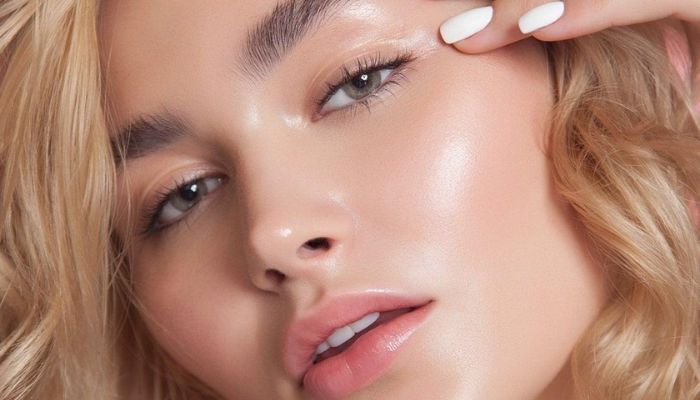
Zinc Citrate for Skin Health: How It Can Improve Your Complexion
In the quest for flawless skin, the role of essential minerals often goes under-appreciated. Among these, zinc, particularly in the form of zinc citrate, has emerged as a cornerstone for maintaining and enhancing skin health. This first part of our exploration into zinc citrate for skin health delves into how this vital nutrient can improve your complexion, focusing on its mechanisms, benefits, and application methods.
The Essential Mineral for Skin: Understanding Zinc
Zinc is an essential mineral that plays a pivotal role in numerous bodily functions, including immune response, cell growth, wound healing, and inflammation control. Its benefits for the skin are equally impressive, ranging from managing acne to improving the skin’s overall appearance. Zinc citrate, along with other forms like zinc oxide, zinc acetate, and zinc gluconate, is particularly noted for its high bioavailability, meaning the body can easily absorb and utilize it.
Zinc Citrate and Skin Health: A Synergistic Relationship
Zinc’s relationship with skin health is multifaceted. It is known for its anti-inflammatory properties, making it a key ally in fighting inflammatory skin conditions such as acne. Zinc helps to decrease inflammation and the production of inflammatory proteins, thereby reducing the severity and frequency of acne breakouts. Moreover, zinc’s antibacterial properties target acne-causing bacteria, further aiding in acne management.
Topical zinc, including zinc citrate formulations, can be applied directly to the skin, offering targeted benefits. It effectively treats mild to moderate acne vulgaris and other inflammatory skin conditions. Zinc also acts as a physical barrier, protecting against harmful UV rays and preventing sun damage, which is crucial for maintaining healthy skin.

Beyond Acne: The Wider Benefits of Zinc for the Skin
Zinc’s benefits extend beyond just combating acne. Its role in wound healing is well-documented, with zinc being essential for collagen synthesis and cell growth. This accelerates tissue repair and contributes to a more youthful-looking skin by boosting collagen, the protein responsible for skin’s elasticity and firmness.
Furthermore, zinc supplementation, whether through oral supplements or a diet rich in zinc, can enhance the skin’s appearance. Adequate zinc levels are necessary for maintaining the skin barrier, which protects against environmental damage, retains moisture, and keeps the skin hydrated. For those with dry or irritated skin, zinc can provide much-needed relief by strengthening this barrier and promoting a healthier skin texture.
Addressing Zinc Deficiency for Skin Health
Despite its importance, zinc deficiency is not uncommon, especially in developing countries or among individuals with inadequate dietary intake. Symptoms of zinc deficiency include weakened immune response, increased susceptibility to skin lesions, and a slowed wound-healing process. Ensuring enough zinc through diet or supplements is crucial for both overall health and addressing specific skin concerns.
Incorporating foods rich in zinc, such as fortified cereals, nuts, dairy products, and meats, into your diet is one way to boost your zinc intake. For those unable to meet their zinc needs through diet alone, oral zinc supplements or skincare products containing zinc can be beneficial. It’s important to note, however, that too much zinc can also have adverse effects, highlighting the need for a balanced approach.
Practical Applications of Zinc in Skincare
Zinc’s versatility allows it to be incorporated into various skincare products, from creams and lotions to serums and sunscreens. Products containing zinc, especially zinc oxide, are renowned for their sun protection qualities, offering a physical barrier against the damaging effects of UV rays. For those with acne-prone skin, topical zinc can reduce oil production, minimize the appearance of acne spots, and soothe irritated skin. Furthermore, zinc pyrithione is an active ingredient in formulations aimed at treating dandruff and seborrheic dermatitis, showcasing zinc’s broad applicability in addressing skin and scalp conditions.

The Scientific Evidence Behind Zinc’s Skin Benefits
A wealth of scientific evidence underpins the efficacy of zinc in skin health. Studies have shown that both oral and topical forms of zinc can significantly reduce the severity of acne and inflammatory skin conditions. Zinc supplementation has been linked to improved acne outcomes, particularly in cases of severe acne vulgaris. Research also supports zinc’s role in enhancing wound healing, and immune function, and reducing the risk of developing infections at wound sites.
One of the key mechanisms by which zinc benefits the skin is through its influence on the body’s inflammatory response. By modulating this response, zinc helps to decrease the production of inflammatory cytokines, which are implicated in various skin disorders. Additionally, zinc’s ability to boost collagen production and support cell growth is crucial for maintaining a youthful and healthy complexion.
Incorporating Zinc into Your Beauty Routine
To harness the benefits of zinc for skin health, consider the following tips:
- Evaluate Your Skin Type and Concerns: Choose zinc-based products that align with your specific skin needs. For example, zinc oxide sunscreens are ideal for sensitive or reactive skin, while zinc serums may be more suited for those targeting ageing signs or uneven skin tone.
- Balance is Key: While zinc is beneficial, too much can lead to adverse effects such as dryness or irritation. Start with lower concentrations and monitor your skin’s response.
- Combine with Other Nutrients: Zinc works well in synergy with other skin-loving nutrients like vitamins C and E, enhancing its skin-protective and healing properties. Look for products that combine these ingredients for added benefits.
- Dietary Intake: Don’t overlook the importance of dietary zinc. Incorporate zinc-rich foods into your diet to support skin health from the inside out. This is especially important for those with inadequate dietary intake or at risk of zinc deficiency.
Safety and Considerations
While zinc is generally safe for most people, it’s important to consider potential interactions and the risk of zinc toxicity. Excessive zinc intake, particularly from supplements, can interfere with the absorption of other essential minerals like copper and lead to adverse effects. Always consult with a healthcare provider before starting any new supplement regimen, especially if you have underlying health conditions or are pregnant or breastfeeding.
Conclusion
Zinc citrate and other forms of zinc offer a multifaceted approach to improving skin health and addressing a range of skin concerns. From its protective anti-inflammatory properties to its role in wound healing and collagen synthesis, zinc is a valuable addition to any skincare routine. By understanding how to effectively incorporate zinc into your beauty regimen and ensuring adequate dietary intake, you can unlock the full potential of this essential mineral for a healthier, more radiant complexion.
